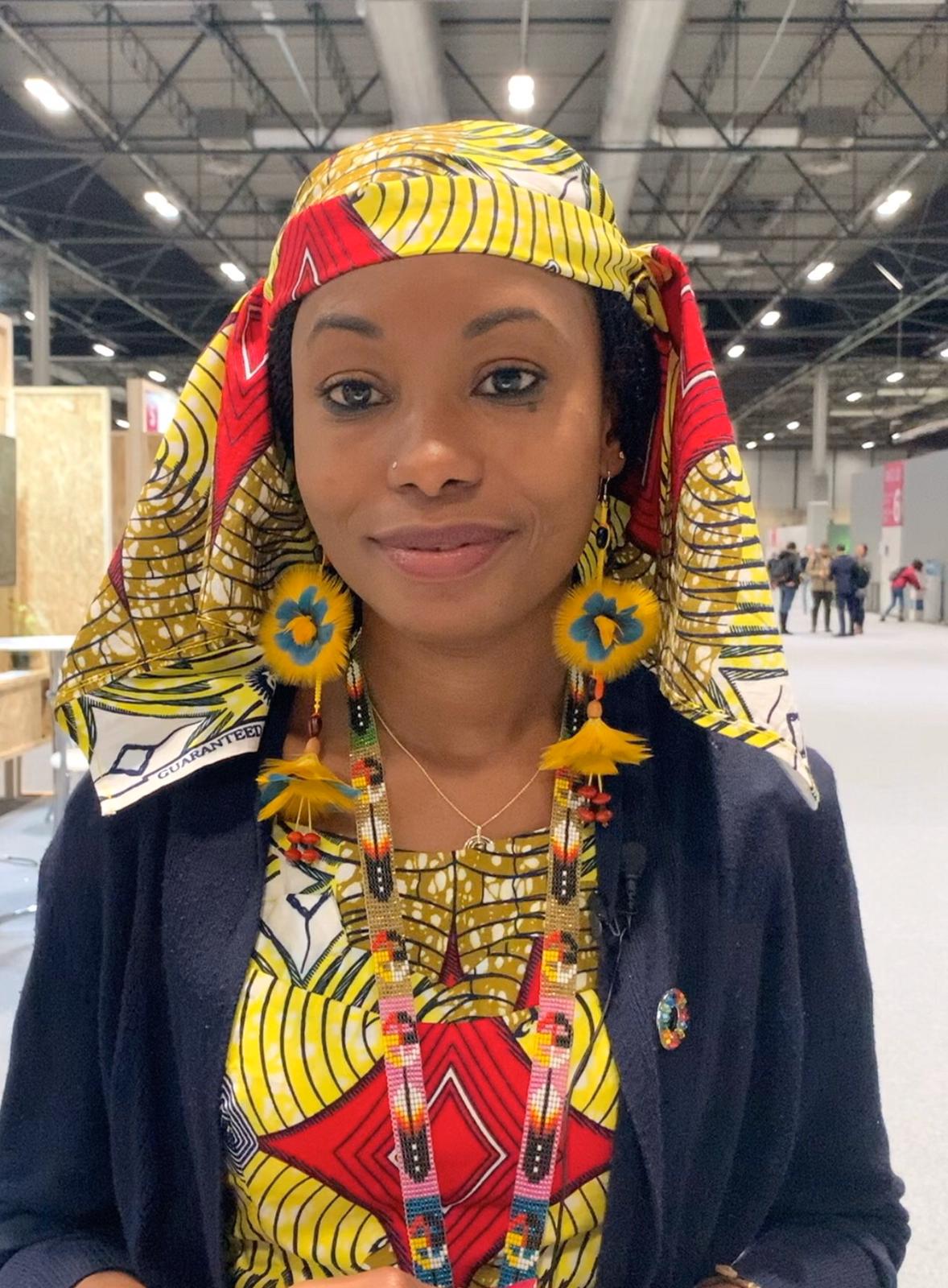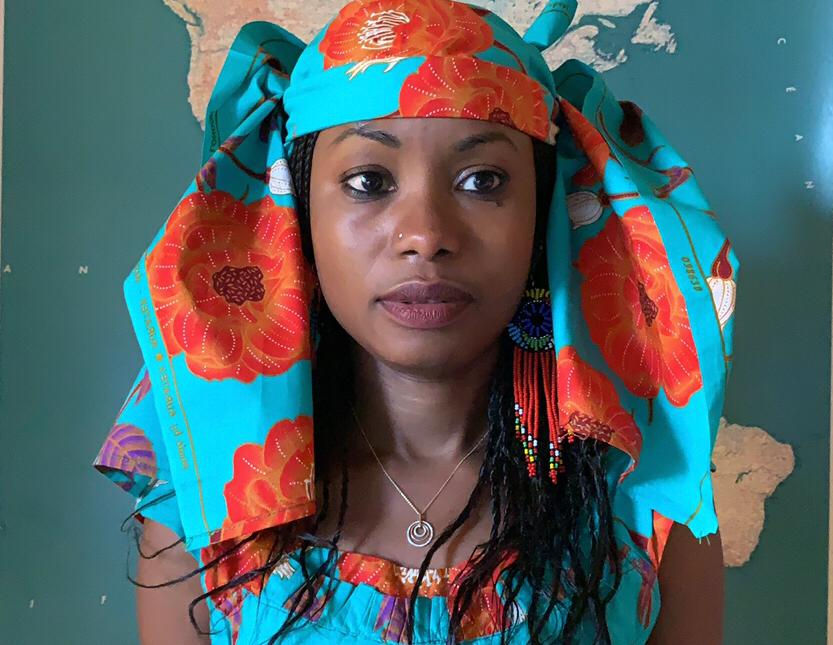Hindou Oumarou Ibrahim

Content created by Virtual Intern Ingrid Liu
An indigenous woman from the Mbororo pastoralist community in Chad, Hindou Oumarou Ibrahim is a human rights champion for her community and other marginalized communities. Ibrahim participated in the International Visitor Leadership Program's (IVLP) “Youth Leadership and Civic Engagement in the U.S.” project in 2012 that provided an opportunity to visit a Native American reservation. Ibrahim was able to compare the sovereign nature of the indigenous communities in the United States to her own community’s situation. It was eye-opening for her to see how the education system on the reservation allowed the Native American students to maintain their indigenous identity.
As a direct result of her IVLP, Ibrahim now serves in a number of regional and international leadership positions. She is a member of the Indigenous Peoples of Africa Coordinating Committee and served as co-chair of the International Indigenous Peoples Forum on Climate Change during the historic UN Climate Change Conference (COP21) in Paris. As a climate activist, she has received recognition as a part of the BBC's 100 Women Project and was awarded the Pritzker Emerging Environmental Genius Award.
Hindou Oumarou Ibrahim is a leading voice for environmental stability and is effectively empowering indigenous voices.
Content edited by Sallie Bestul, Regina Navarro-Gomez, and Jenna Williams
Blog
Memories from Hindou Oumarou Ibrahim’s IVLP
Hindou Oumarou Ibrahim vividly remembers her 2012 International Visitor Leadership Program (IVLP) experience, the people she met, and the places she visited. Per the purpose of this program - to be involved with the local youth civic actions and responsibilities - Ibrahim saw civil society in the United States up close. She came away with a network of friends and colleagues that she still corresponds with today.
In North Carolina, Ibrahim witnessed how the election process worked at a voting booth. Outside of the voting area, she saw people openly debate which candidate and issues they were supporting, and inside she saw all the facilities and tools used for voting, such as the computerized voting booths. Being able to see the logistical process of elections allowed Ibrahim to better understand election outcomes in U.S. and compare them to her home country.
One person in particular that Ibrahim remembers meeting was a 22-year-old woman running for office in New Mexico. When talking to her, Ibrahim learned that even in the United States, young women like herself, face discrimination. Seeing a young woman run for office despite her challenges was inspirational, she said.
Ibrahim not only saw similarities in herself and the woman from New Mexico, but she also saw similarities in culture when she went to an Indian reservation. As Ibrahim is part of an indigenous group, she felt that the culture of Native Americans was similar to her community. Seeing the school system be supportive and responsive to the Native American community was eye-opening for her as these students were able to keep their indigenous identity. She still keeps a necklace and earring given to her by an elder she met on the Indian reservation.
Lastly, perhaps the most obvious takeaway was from meeting her fellow participants and her interpreter. Ibrahim has kept in contact with them to this day and often connects with them through social media. She became close friends with one participant in particular who even named his son after her husband. In addition to friendship, Ibrahim and her fellow IVLP participants have built an ever-expanding network that has helped them further their causes.
Continuing to use the principles of democracy and self-government she learned in the U.S., Ibrahim has collaborated with both UNESCO and Indigenous Peoples of Africa Coordinating Committee in the development of a scientific tool to empower indigenous voices while increasing environmental sustainability. She has also greatly improved her English since her visit, as she wanted to be able to communicate directly with others internationally instead of through an interpreter. Ibrahim is currently working on a local project in Chad involving empowering women through generating revenue, which is then used to send children to school.



